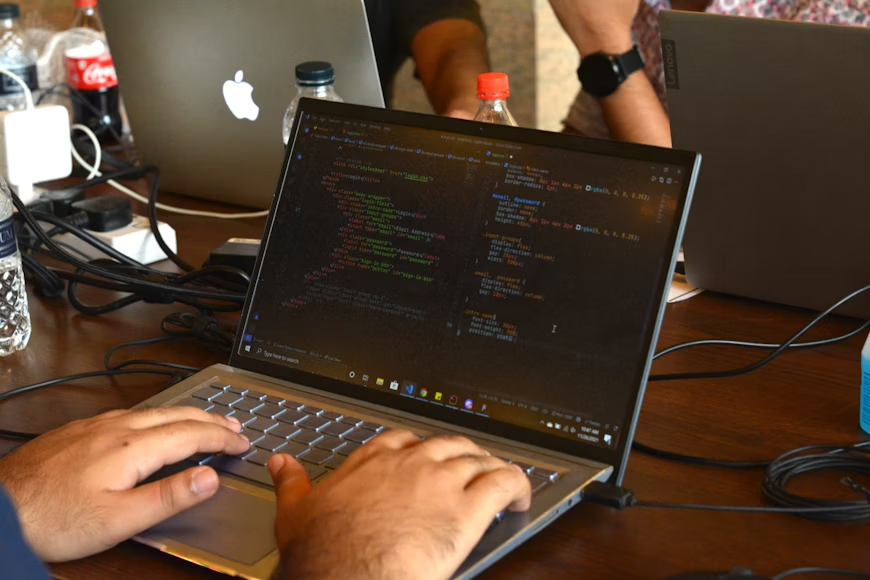Every business today relies on digital connections. Applications share data, mobile services link to platforms, and cloud environments run operations. At the centre of this ecosystem are Application Programming Interfaces (APIs). They act as the channels through which your systems exchange data and deliver value to customers.
While APIs have become indispensable, they have also become attractive targets for attackers. They manage sensitive customer information, business transactions, and backend processes. A single weak API can act as a direct gateway into your most valuable systems. This risk makes API penetration testing one of the most important defences for modern organisations.
Why APIs Have Become Targets
Attackers are always looking for weaknesses. APIs provide them with opportunities because they are exposed, widely used, and often complex. In Australia, the Australian Cyber Security Centre (ACSC) receives thousands of incident reports each year, many of which involve applications or data breaches. APIs are often the underlying cause.
Some common reasons APIs attract attacks include:
● Data concentration: APIs often transmit sensitive customer data.
● Rapid integration: New features and third-party services are constantly added, increasing complexity.
● Misconfiguration: Poor authentication or access controls allow unauthorised entry.
● Lack of visibility: Many organisations underestimate how many APIs they have in operation.
This combination makes APIs the perfect target. Without structured testing, vulnerabilities remain hidden until exploited.
What is API Penetration Testing?
API penetration testing is the practice of simulating real-world attacks on your APIs to identify vulnerabilities before criminals can use them. It goes beyond automated scans. Skilled testers apply both tools and manual analysis to replicate the techniques attackers would use.
During testing, specialists attempt to:
● Break authentication and authorisation systems.
● Inject malicious input into endpoints.
● Exploit weak encryption or insecure communications.
● Chain small flaws across endpoints to create larger breaches.
The result is a clear picture of how secure your APIs truly are. Instead of relying on assumptions or surface-level checks, you receive evidence-based findings with practical steps for remediation.
Common API Weaknesses
APIs fail for many reasons, but testing frequently identifies the same categories of weaknesses:
Broken Authentication
When login processes are misconfigured, attackers may gain access with little resistance. Weak session handling, missing tokens, or default passwords are common errors.
Insecure Data Transmission
Unencrypted traffic allows attackers to intercept sensitive data. APIs that fail to use secure protocols expose customer and business information in transit.
Excessive Data Exposure
Poorly designed endpoints may return more data than required. Attackers can request additional fields, gaining access to confidential records.
Lack of Rate Limiting
APIs that do not restrict request volumes allow attackers to flood systems or attempt brute-force attacks without resistance.
Improper Error Handling
Detailed error messages may reveal database structures or configuration details. Attackers can use this information to refine their attacks.
Each weakness alone may appear minor. Together, they provide attackers with a path to compromise your systems.
How API Penetration Testing is Performed
The process of API penetration testing follows a structured approach designed to provide clarity, safety, and measurable results.
Scoping
The first step defines what will be tested. This includes identifying the APIs, the level of access provided, and the objectives.
Reconnaissance
Testers map the API, reviewing documentation, endpoints, and parameters. This creates a blueprint of how the system functions.
Exploitation
Simulated attacks are performed against authentication, input handling, and data processes. Testers attempt to exploit flaws in the same way an attacker would.
Post-Exploitation
If access is gained, testers assess how deep the compromise can go. This stage demonstrates the potential impact on business operations.
Reporting
You receive a plain-English report that explains each issue, its risk rating, and steps for remediation. The report is not only technical but also tied to business consequences.
Why Automated Scans Fall Short
Automated tools have value, but they are not enough. Scanners may identify obvious issues, but they cannot understand business logic or exploit chained vulnerabilities.
For example, a scanner may report missing input validation. Only human-led testing can demonstrate how this flaw allows attackers to bypass authorisation and extract entire customer datasets. API penetration testing bridges this gap by combining automation with expertise.
The Business Impact of API Security
Weak APIs do not only represent technical problems, but they also affect your entire business.
● Reputation: Customers lose trust when their data is exposed.
● Financial loss: Breaches may lead to compensation costs, downtime, and recovery expenses.
● Compliance: Failure to protect data may result in fines under Australian regulations.
● Operations: Attacks that disrupt APIs can bring core services to a halt.
Testing provides visibility over these risks. By identifying weaknesses early, you control the narrative, not the attacker.
Benefits of Regular Testing
The value of API penetration testing is not just in identifying vulnerabilities but in strengthening your long-term security posture. Regular testing allows you to:
● Detect new weaknesses introduced by updates or integrations.
● Verify that previous issues have been remediated.
● Provide assurance to customers, investors, and regulators.
● Support continuous improvement in your security program.
In short, testing becomes part of your ongoing defence strategy, rather than a one-time project.
Why Australian Businesses Should Act Now
Cybercrime in Australia is growing in scale and cost. The ACSC reported an average of one cybercrime incident every six minutes in 2023–24. With APIs driving mobile apps, e-commerce platforms, and other services, attackers are increasingly targeting them.
Businesses that delay testing place themselves at unnecessary risk. By investing in API penetration testing, you protect customer trust and demonstrate responsible governance. In a competitive environment, security becomes not only a defence but a market differentiator.
Building Security into Strategy
Your APIs will continue to grow in number and complexity as your business expands. Each new service, integration, or mobile application adds more endpoints. Security must grow alongside this expansion.
Embedding API penetration testing into your development cycle helps detect weaknesses before they reach production. This reduces remediation costs and prevents incidents that damage your reputation.
Security is not a barrier to innovation. It is the foundation that allows you to innovate with confidence. Strong security practices also build trust with stakeholders, strengthen compliance efforts, and provide long-term resilience. By maintaining a consistent testing program, you create stability across your technology environment. Ultimately, protecting APIs becomes a continuous process that supports both business growth and digital reliability.
Lean Security: Your Partner in API Protection
APIs are your digital core, and their protection requires more than automated scans. Regular API penetration testing helps safeguard your systems, customer trust, and compliance position. By combining network penetration testing, mobile application security testing, managed internal vulnerability scanning, and broader web security testing, you build a resilient defence against real-world threats.
As a Sydney-based penetration testing company, Lean Security delivers more than reports. We provide human-led testing, clear explanations, and actionable solutions. Our team specialises in penetration testing methods, application security testing, web security audit, and advanced services.
Contact Lean Security to discuss how our penetration testing company can protect your APIs, applications, and networks.





